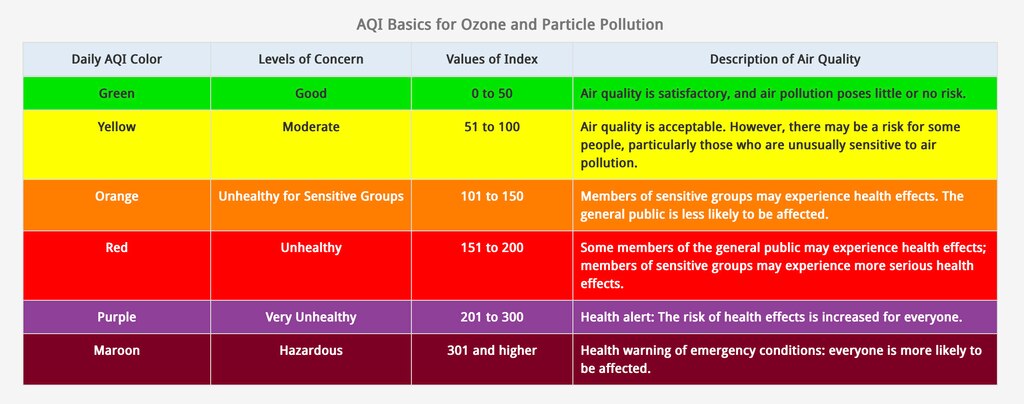As Canadian wildfire smoke passes over Baltimore City again, I sit in deep contemplation about how to show up as a good community organizer. I run a program called Free Baltimore Yoga, and we host more than three free yoga classes a week. Many are outdoors. When the first wave of wildfire smoke passed over the city and the Air Quality Index soared to 150, Free Baltimore Yoga canceled all classes until the air quality was below 100.
The Air Quality Index is a scale created by the Environmental Protection Agency that is used to help people monitor the levels of ozone and particle pollution.

Free Baltimore Yoga selected 100 AQI because any reading above that would be unhealthy for sensitive populations. The National Oceanic and Atmospheric Administration defines a sensitive group as “people with lung disease such as asthma, older adults, children and teenagers, and people who are active outdoors.”
Free Baltimore Yoga aims to be more inclusive of this critical demographic. We made an intentional decision to cancel classes. More cancellations accompanied the subsequent waves of Canadian wildfire smoke.
Later, I was notified of an air quality alert not connected to the Canadian wildfire smoke. The combination of ozone and heat would send the AQI reading in parts of Baltimore above 100. I realized that not all parts of the city would reach above 100. Where I live and where we host a class in Remington would be fine. But areas such as Curtis Bay would surpass a 100 AQI reading.
This realization reminded me how some communities in Baltimore disproportionately bear the brunt of pollution and the resulting health effects. It had me truly pondering how we can think about community safety more collectively, in the absence of guidance from governmental agencies and public officials.
While the EPA’s AQI scale speaks in terms of more immediate health effects — which could include irritation of the throat and eyes, difficulty breathing and headaches — the long-term harm from air pollution also must be considered. For example, numerous studies have shown that air pollution can:
- worsen and can even cause the development of asthma
- increase the risk of heart attacks and strokes
- cause lung cancer
- increase susceptibility to infections
- cause low birth weight and other developmental issues, and
- decrease lung growth in children.
Recent research has shown that elevated levels of PM2.5 (fine particulate) exposure can present a health risk equivalent to that of cigarette smoking.
The effects of poor air quality are not felt equally, and inequality is not a new concept in Baltimore. An urban heat island effect has been noted in places with fewer green spaces and trees. Those conditions exist in many of Baltimore’s Black neighborhoods. Deep-rooted racism and inequality also show themselves now through concentrated industrial facilities and transportation corridors that emit high levels of air pollution.
Climate change is here, and we must find ways to ensure the most vulnerable are not left behind. It is imperative that we figure out how to best warn and educate ourselves and those around us. Baltimore has barely notified communities when the air quality is bad. The city’s text notification system leaves out many, including me. Not everyone is online all the time or following every city webpage. Most residents don’t get citywide email alerts.
Keeping one another informed requires that, as organizers, we keep an eye on air quality just as we keep an eye on the weather and weather emergencies.
We want to find ways to center love and safety in our communities, especially regarding the most vulnerable. We need to educate without instilling fear. We need to balance caution with celebration.
It’s vital for us to share resources (education and information) in a way that minimizes work by a single person or entity. We also must continue to create systems of care outside of government.
As we face the worsening impact of climate change and health effects from air pollution, the time is ripe for community organizers and others to effectively address these issues.
Naadiya Hutchinson is the co-lead of Free Baltimore Yoga. She has a master of health science degree in environmental health and engineering.



Comments
Welcome to The Banner's subscriber-only commenting community. Please review our community guidelines.